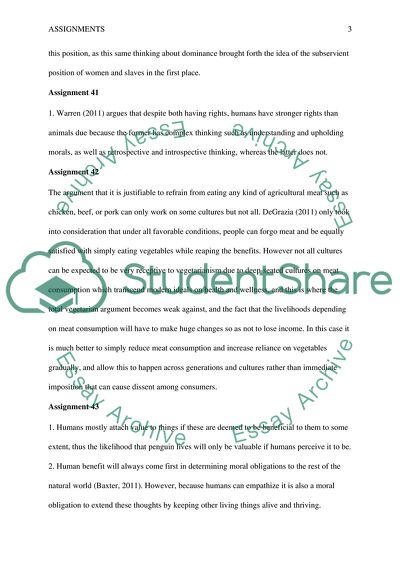Cite this document
(Equal Consideration for Every Species Assignment Example | Topics and Well Written Essays - 1250 words, n.d.)
Equal Consideration for Every Species Assignment Example | Topics and Well Written Essays - 1250 words. https://studentshare.org/philosophy/1811547-38-51
Equal Consideration for Every Species Assignment Example | Topics and Well Written Essays - 1250 words. https://studentshare.org/philosophy/1811547-38-51
(Equal Consideration for Every Species Assignment Example | Topics and Well Written Essays - 1250 Words)
Equal Consideration for Every Species Assignment Example | Topics and Well Written Essays - 1250 Words. https://studentshare.org/philosophy/1811547-38-51.
Equal Consideration for Every Species Assignment Example | Topics and Well Written Essays - 1250 Words. https://studentshare.org/philosophy/1811547-38-51.
“Equal Consideration for Every Species Assignment Example | Topics and Well Written Essays - 1250 Words”. https://studentshare.org/philosophy/1811547-38-51.


